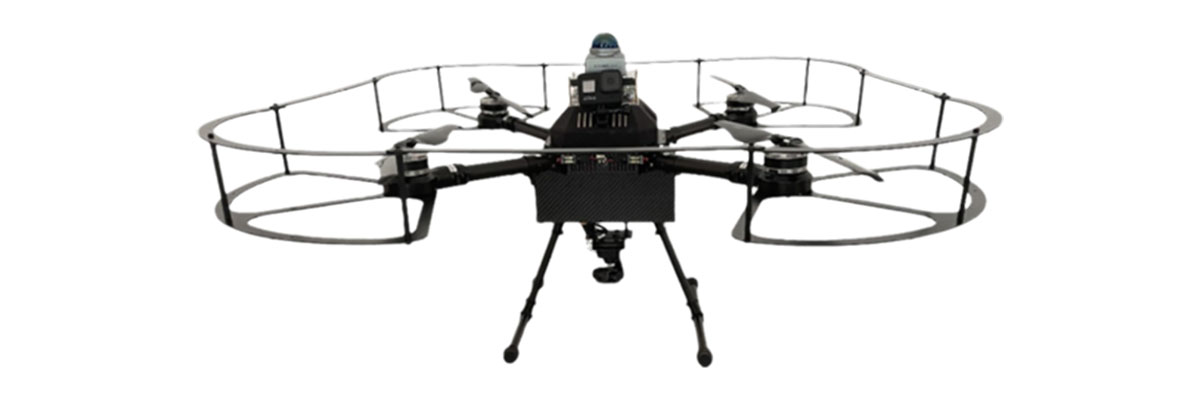The indoor UAV circumvents the risk of manual inspection and improves the safety of operation. Meanwhile, based on LiDAR technology, it can fly smoothly and autonomously in the environment without GNSS data information indoors and underground, and can comprehensively scan the top, bottom, and surface of the interior and tunnels in all directions without dead angle, and construct high-definition model image data. In addition, the UAV is equipped with a cage-type collision avoidance structure, which strongly guarantees the safety of the UAV during flight, and it can be used in a variety of environments, such as highway tunnels, underground passageways, and indoors.

Application Scenarios
Security Monitoring
Indoor drones can be used for security surveillance in large indoor spaces such as shopping malls and warehouses, providing real-time video and images to help security personnel respond quickly to potential security threats.
Building Inspection
Inside construction sites or completed buildings, drones can perform structural inspections to assess building conditions. They can be used to inspect roofs, pipes, ventilation systems, and other places that are difficult to reach directly, replacing manual labor for operations and improving inspection efficiency and safety.
Emergency Response
In emergency situations, such as fires, earthquakes and other disasters, indoor drones can quickly enter hazardous areas for situation assessment and rescue guidance.
Event Recording
During conferences, exhibitions, sports events and other activities, drones can conduct aerial photography to record the scene, providing unique perspectives and high-definition images, and the finished products can be widely used in film and television production and news reporting.
Agricultural Applications
In large greenhouses or indoor farms, drones can be used to monitor plant growth conditions and pest and disease monitoring, providing a basis for agricultural decision-making, as well as precise fertilization, saving time and resources and improving work efficiency.
Warehouse Management
In large warehouses, drones can fly autonomously for inventory counting and management, greatly reducing labor costs and time consumption, and improving the accuracy of inventory counting. The data collected by drones can be analyzed in depth to help warehouse managers better understand the inventory situation and carry out inventory optimization and forecasting.
Logistics and Transportation
In large factories or warehouses, drones can be used for internal cargo handling and distribution, improving logistics efficiency and reducing costs. In emergencies, such as the distribution of medical supplies, drones can respond quickly to avoid ground traffic congestion and deliver critical materials to their destinations in a timely manner.
Scientific Research
In scientific research organizations or laboratories, drones can be used to perform precise experimental operations or data collection, such as in biological laboratories for moving samples.
Education and Entertainment
In the field of education, drones can be used as a teaching tool for STEM education, helping students learn physics, math and engineering by programming and manipulating drones. Also, drones are commonly used for indoor performances and entertainment, allowing for flying stunts.
Post time: Oct-15-2024